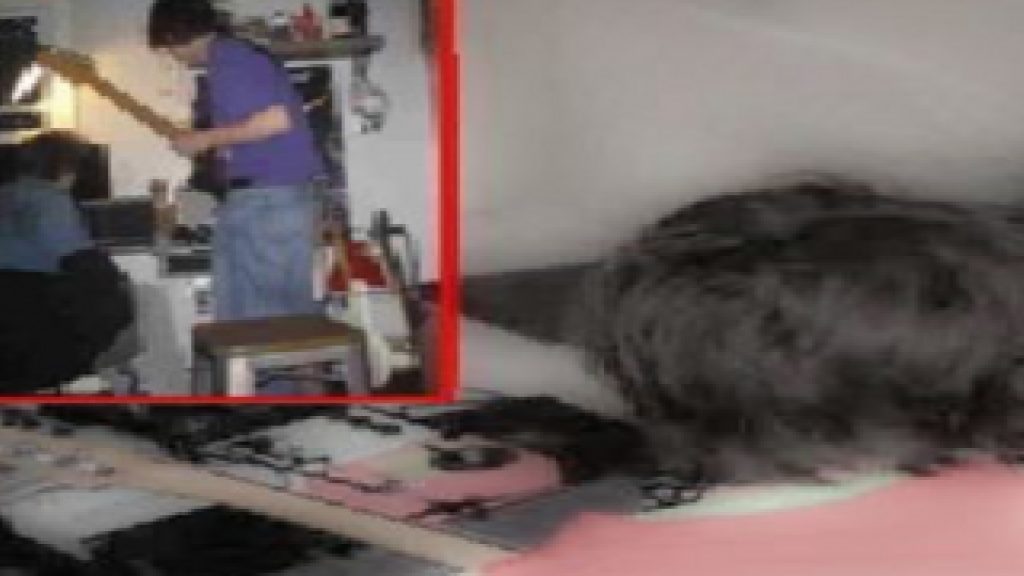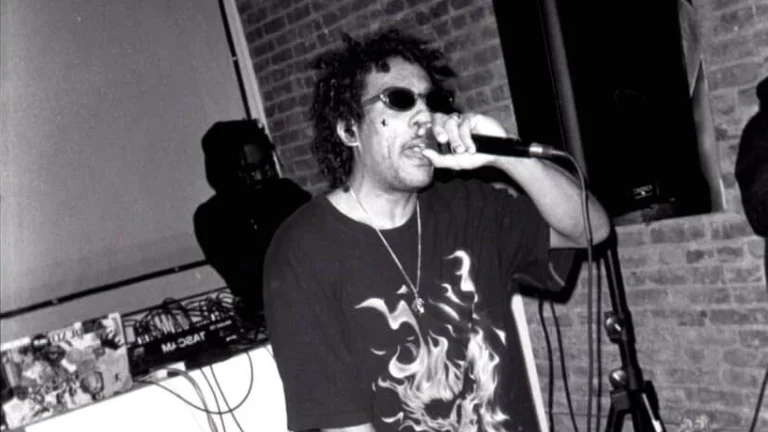Privativa is just as much of an enigma as their debut album, sparkling water. Information on the artist is extremely limited, letting the breakcore album speak for itself. And speak for itself it does, somewhat sentimentally showcasing childhood experiences through classic internet aesthetics and references.
The opening track, “ko2,” is repetitive instrumentally, with your typical indie bassline. The album’s uniqueness shines through as the synth-y effects are layered over this, almost whiny as they continue. All lyrics are muddled, hidden by the instrumentals and heavy autotuning, passionately sung as if the singer pleads for something beyond the listener’s grasp. The lyrics I could make out were “Please don’t get it,” the last word of the sentence a mystery; asking a question the listeners can’t answer. The more you listen, the more you can interpret what they’re asking, but it may just be that—an interpretation. The singer’s actual request is lost, swallowed by the hungry, building bassline.
“99Valentine” treats its lo-fi backing track similarly, constantly ebbing and flowing. This feels like a very oceanic track. It opens with a soft, swooping electronic beat that builds into a crashing, hyperpop sound. Then, that’s washed away with the initial backdrop coming to the forefront again.
Or maybe this push and pull is related more to a desire to regress competing with the responsibilities of adult life. This is what the chaotic next track, “acerr,” brings up. “acerr” is very twinkly sonically, with lyrics that, once again, spin in and out of focus. Heavy drum beats halfway through the song serve as its grounding force, as if pulling it back from the ever-alternating rhythm.
This whole album is made up of rudimentary song names, some even referencing specific common childhood memories, tied to an older time. The next track’s title is a great example. “baby blanket” feels like video game music or something you may have heard in an animation meme. It’s very bouncy, and you can almost visualize a Sonic-esque character running along to the beat. The name “baby blanket” is very on brand, since it’s an overwhelmingly positive tone compared to the rest of the album. This hyper-upbeat nostalgia feels as if it’s trying to keep you in a certain mindset, not allowing anything harmful to enter—like a protective baby blanket.
“jibble” is the opposite of this, the slowest track on the album. It brings listeners back down to earth again but for a full minute this time. You can hear the sound of what is presumably a voicemail repeating very quietly in the back. The longer the talking continues, the more the music distorts, increasingly out of tune, like a broken music box. It replicates the feeling of sitting at home, alone, listening to the same old voicemail over and over, maybe trying to relive something long gone. But sparkling water never leaves listeners lingering in the sadness of reminiscing for too long, and the transition into the next song, “go red socks,” is as jarring as it is a relief.
“go red socks” not only feels like being surrounded by a crowd of screaming fans, but many of the chord progressions feel like something you would hear in a sports chant. As the song progressively gets more and more hype, we start to hear a voice, describing its feelings towards winter. For the first time, the “lyrics” are somewhat intelligible, saying, “What I mean is, I love winter / And when you really love something and it loves you back in whatever way it has to offer / And it loves you back in whatever way it has to offer.” These lines, with their childlike simplicity, go back to the constant shroud we’re listening to this album through like the whole thing is just a faded memory.
“crushing compact” is the final song on the album, and with it, I feel like I’m losing something. It’s almost sweet, like a lullaby—soft and supposed to soothe, if not for the track skipping, like something is missing. As if becoming tired of everything being missed with the malfunction, the song’s background begins to devolve into screaming. When listening to sparkling water, I can’t help but think of the movies of Jane Schoenbrun, with her use of early 2000s internet culture to tell stories of something not quite right within adolescence. The album’s cover references the internet of the early 2000s with its layout, a picture of a face incomplete, with other photos of what seems to be a childhood home peeking through. Something has been corrupted here.
That’s how I view this sparkling water, too. I found myself repetitively listening to the songs, trying to decipher the lyrics concealed just below the surface. But I don’t think the lyrics themselves are as important as the music around it, and the story it’s telling. That music is desperate to be heard, but like the noise at the very end of “crushing compact” signifies, reminiscent of off of a TV, that’s not always possible. I don’t think this album is making any hard statements on nostalgia, but I think it recognizes you can’t exist in it forever. You have to turn it off and get to your life in the present at some point. But while listening to sparkling water, you’re given a moment to play pretend for a little while longer.





